YANGON—With Myanmar’s general election set to take place on Nov. 8, the biggest question is whether the ruling party, the National League for Democracy (NLD), will secure another landslide victory. Some observers say that a significant decline in the party’s popularity in ethnic areas means it will need to forge alliances with ethnic parties in order to form a government after the 2020 election.
Myanmar is an ethnically diverse country. Of its 14 states and regions, half are ethnic states. Furthermore, there are millions of ethnic people living in the Burmese-dominated regions as well.
Ethnic people are disappointed with the NLD for failing to implement its key promises, such as amending the 2008 military-drafted Constitution, forming a federal Union and achieving peace. They are also discouraged by the government’s failure to speak out on behalf of ethnic rights, and the poor performances of the cabinet and Parliament.
This dissatisfaction with the current administration among ethnic people has encouraged many of the country’s numerous homegrown ethnic parties to merge with each other, with the aim of defeating the NLD, as they believe the party has failed to bring satisfactory development or improvements in their respective ethnic states.
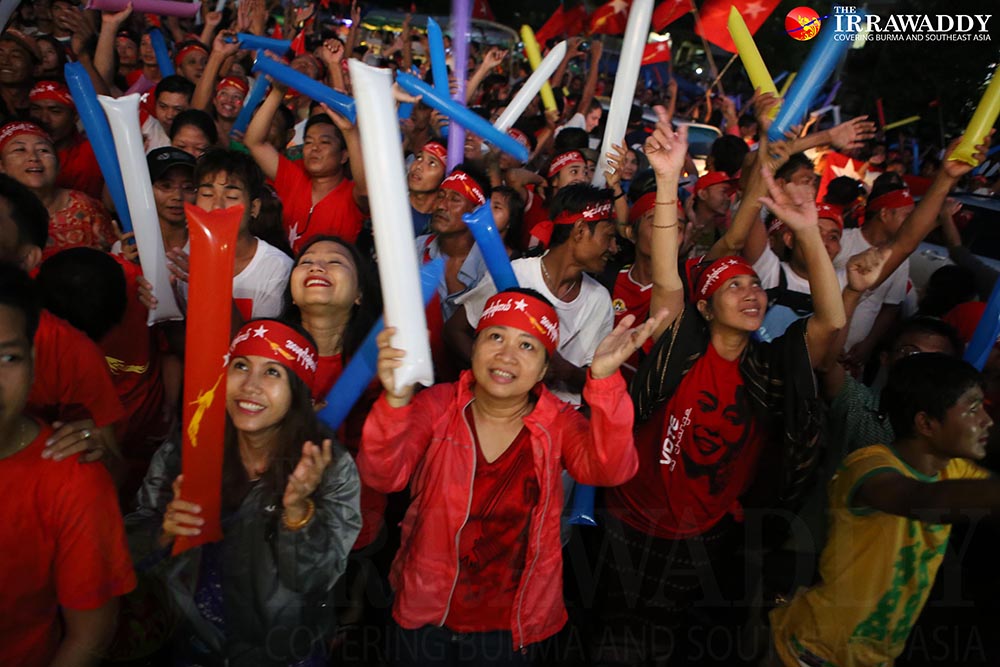
Most parties within ethnic groups in Karen, Kachin, Kayah, Mon and Chin states have merged ahead of the upcoming election, putting on a united front in the hope of winning majorities in their state parliaments, and of claiming most of the national Parliament seats in their states in order to achieve their goals of self-determination, securing equal rights and forming a federal Union.
“Based on the current sentiments among ethnic people, ethnic parties are highly likely to win majorities in state parliaments. They also have a high chance of winning [more] seats in the Union Parliament as well,” U Yan Myo Thein, a political analyst, told The Irrawaddy.
“Given these circumstances, the NLD will need to form alliances with ethnic parties if they do not win enough seats to form a government,” U Yan Myo Thein said.
Ethnic parties have estimated they will win at least 20 percent of the seats in the upcoming election, while the NLD will win around 40 percent of seats in the national legislature. The ruling party will need to win more than 50 percent of seats—more than two thirds of the total seats—to form a government, because the 2008 military-drafted Constitution reserves 25 percent of the seats for the military-appointed lawmakers in the Union and state and regional parliaments.
In the 2015 election, the NLD won in a landslide—taking 59.4 percent of seats in the Lower and Upper houses of Parliament, while ethnic parties won only 8.7 percent. The party won more than 50 percent of seats in each of the ethnic dominated state parliaments in Chin, Kachin, Kayah, Kayin and Mon states. However, it only won around 16.2 percent in Shan State, where the military-aligned Union Solidarity and Development Party (USDP) won 23.2 percent of seats. Moreover, the Rakhine ethnic party, the Arakan National Party (ANP), holds 48.9 percent of seats in the Rakhine State parliament, while the NLD holds only 19.1 percent.
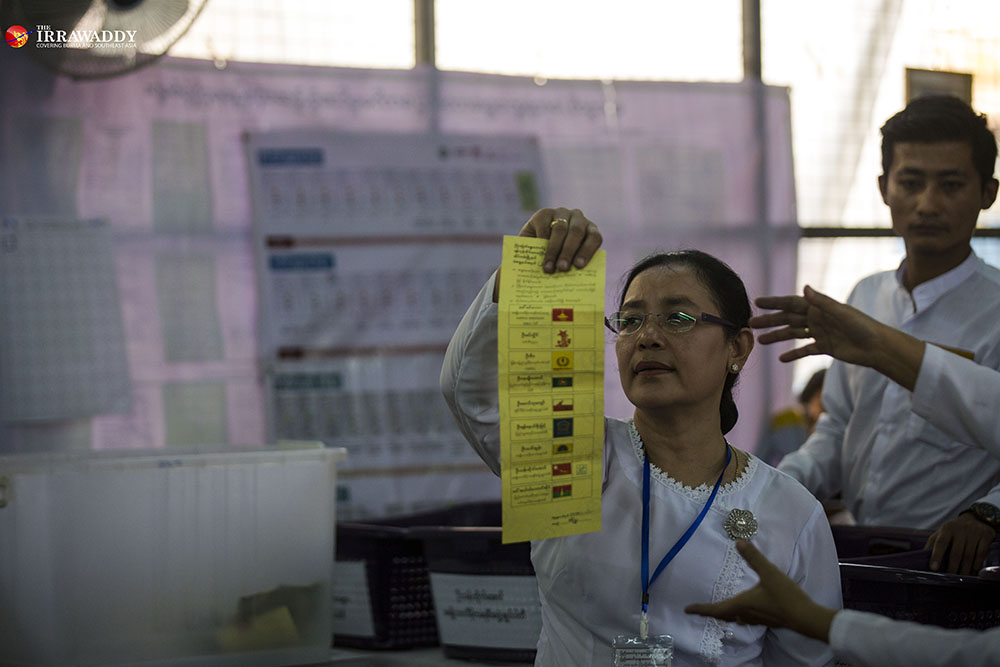
After the NLD had been in office for three years, the result of a by-election in 2018 set off alarm bells for the ruling party, indicating it would face difficulties winning another landslide in the upcoming election. The NLD won only seven of 13 seats in the by-election. The result was far below its expectations of winning a resounding majority of the seats, and the ruling party conceded it needed to do more for voters from ethnic minorities.
To make matter worse, the USDP succeeded in winning three seats previously held by NLD stalwarts. The NLD also lost in Chin’s Matupi Township, which was won by a candidate from an ethnic party, the Chin League for Democracy. Another two seats in Shan State’s Lechar Township and Rakhine State’s Rathedaung Township were won by the Shan Nationalities League for Democracy (SNLD) and independent candidate U Tin Maung Win—the son of former Rakhine MP U Aye Maung—respectively.
Moreover, many ethnic parties in 2015 were focused on contesting elections in their states. But almost all of the ethnic parties are prepared to contest all the available constituencies in the 2020 election, from the state to the Union level and the ethnic affairs minister positions, in other states and regions.
Unlike the 2015 election, many speculate that ethnic parties will win majorities in Kachin, Shan, Karen, Rakhine and Chin states in this year’s election.
Ethnic parties have great confidence they will win majorities this year, and have already formed a coalition board in the expectation of forming a coalition government involving multiple ethnic parties, and any groups that can guarantee ethnic rights and that seek to form federal states in 2020. Their major goals are to form a federal Union, to achieve self-determination and to guarantee equal rights.
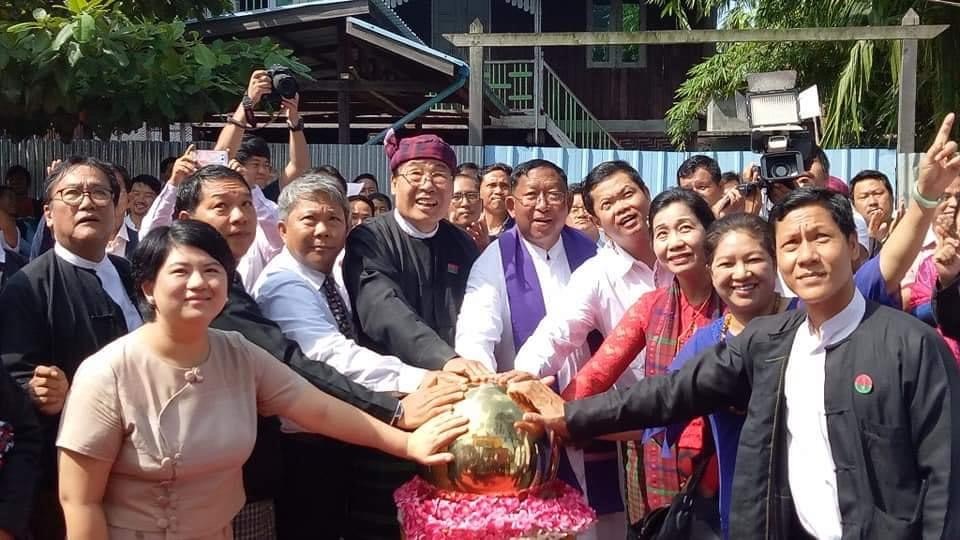
However, the question is whether the NLD would be willing to form an alliance with the ethnic parties.
“Our stand is strong. We are well prepared to form a coalition government. Looking at the major parties—the possible alliances for forming a coalition government would be with the NLD or the USDP. We have no other options,” Gumgrawng Awng Hkam, vice chair of the Kachin State People’s Party (KSPP), told The Irrawaddy.
The KSPP was formed from the merger of six major Kachin parties in 2018. The move was supported by the Kachin people as a way of avoiding splitting their votes and forming a party that could be a strong contender in the 2020 election.
“The NLD recently confirmed that they have no intention to make alliances with the ethnic parties. They will contest in all the constituencies. This means we will have to compete with them,” Awng Hkam said.
“We know what our people want. After the election results come out, they will surely have to negotiate with us. Our door will always be open to them [the NLD],” he said.
Before the 2015 general election, ethnic parties expected to form alliances with the NLD through negotiations on sharing some seats in ethnic areas. However, the NLD neglected the alliances and contested all the seats itself.
Moreover, when it formed governments in states and regions, the NLD refused to appoint elected candidates from ethnic parties to ministerial positions.
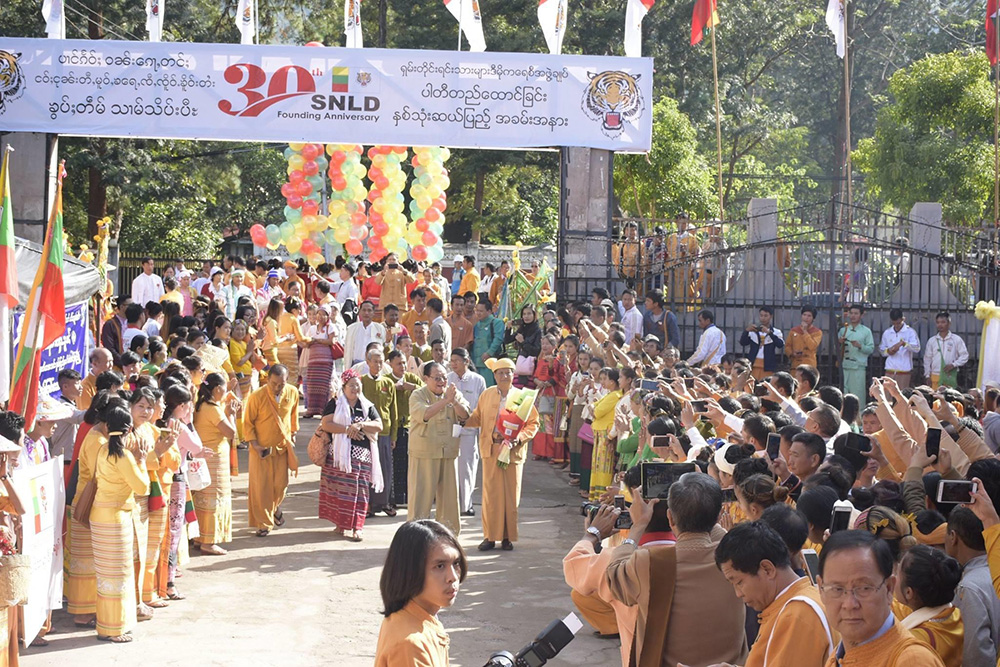
In a recent interview with the media, NLD vice chairman and Mandalay Region Chief Minister Dr. Zaw Myint Maung insisted that the party had given priority to ethnic issues. Moreover, he said, it had appointed ethnic people as chief ministers in ethnic states. They all are from the NLD, however.
Moreover, Dr. Zaw Myint Maung said the NLD still had no intention of negotiating with the ethnic parties. While acknowledging that the ethnic parties had formed alliances and become stronger, he said the NLD would try to win enough seats to form a government by maintaining constituencies in the regions where it won in the past.
However, U Ngwe Thein, vice chair of the Mon Unity Party (MUP)—formed from a merger between two ethnic Mon parties that sought to boost their performance in the 2020 election—told The Irrawaddy that the NLD had little hope of forming a government without seeking an alliance with ethnic parties.
“People are running out of patience with the NLD, as they failed to represent us. In particular, they have rarely talked about ethnic rights during their term,” U Ngwe Thein said.
“I am sure they will also choose candidates from among Mon people, but many of us already know that those are people who only listen to their superiors. They have to listen to the central level first, before they do anything. They can carry out something only after the higher level instructs them to do so,” he added.
“The NLD seems to be drifting away from the people, so the people are starting not to trust them,” he stressed.
U Sai Nyunt Lwin, vice secretary 1 of the SNLD, told The Irrawaddy that despite the NLD’s strong insistence that it would not seek alliances, he believed NLD leaders would make up their minds later.
“Things have changed lately. We think the NLD will discuss the potential for an alliance [later],” U Sai Nyunt Lwin said.
The SNLD, an ally of the NLD since the 1990 election, was among several parties to boycott the 2010 elections, considering them to be neither credible nor fair. However, relations between the SNLD and NLD soured somewhat after the SNLD rejected the NLD’s offer to take a newly created ethnic affairs minister position. The SNLD declined the position believing it had nothing to do with the country’s peace process, a focus of the party’s agenda.
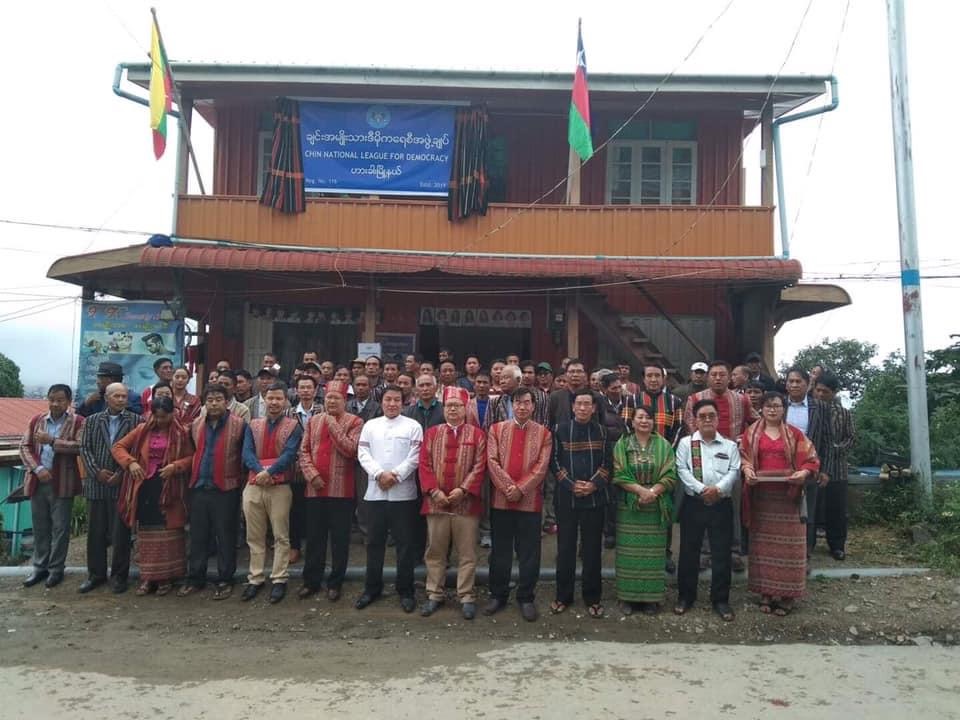
Chin National League for Democracy (CNLD) Vice Chair U Ngai Sak told The Irrawaddy that the broad coalition of ethnic parties, including Kachin, Karen, Kayah, Chin and Mon parties, had agreed to form alliances with any major parties that can guarantee ethnic rights, self-determination and a federal Union.
The veteran politician was involved in alliance negotiations between the NLD and ethnic parties in 1988 and 1989.
“We have an attachment to the NLD, since we had close relations in the past. I want them to join hands with ethnic parties. But they have neglected us. They won a landslide in 2015, and still insist they don’t need any allies,” U Ngai Sak said.
“So, we have no choice. We ethnic parties have already united with each other. And we will make alliances with other major parties who will allow us to fulfill our goals,” he said.
The CLND formed from a merger between three popular Chin parties in 2018.
In 2015, a total of 91 political parties contested seats, of which 64 percent, or 59 parties, represented ethnic minorities. In the upcoming general election, a total of 94 parties will run for parliamentary seats nationwide, including more than 50 parties representing ethnic minorities.
Moreover, some ethnic party leaders have pointed out that the NLD needs to hold discussions with the ethnic parties to avoid possible vote splitting. Experts say the USDP won the most seats in Shan State in 2015 due to the splitting of votes between the NLD and SNLD.
In the 2018 by-election, Awng Hkam ran for an Upper House seat representing a constituency in Myitkyina, the capital of Kachin State. He thought his main rival would be an NLD candidate. But when the result came out, the USDP candidate won the seat and Awng Hkam finished second.
“We both lost that seat—the NLD and the Kachin party. It eventually went to the USDP. It was a bitter experience. I don’t want to go through that kind of experience again,” he said.
“If there are no negotiations [between the NLD and ethnic parties], we could face that situation again. It is not good for either of us. That is the main reason we need to hold discussions as soon as we can,” he added.
He stressed, “The NLD needs to consider this carefully for the sake of the country. We must work together to form a federal Union. I believe that we can make it together.”
Representatives from the USDP in Kachin recently invited the KSPP to discuss issues relating to the upcoming election. But the KSPP leaders declined to meet them, as they don’t believe the military-aligned party would grant them their rights.
“In terms of policy, the NLD is far better than the USDP. But it takes two hands to clap. No matter how many times we say that we want to ally with them [the NLD], if they don’t need us, we can’t do anything,” U Ngai Sak said.
“The NLD needs to consider not only losing seats to the ethnic parties, but also vote splitting, which is another problem due to the disunity between us. If we want to see the development of the country, the NLD and ethnic parities need to be united,” he said.
“For the NLD, it is time to open the door to discussions with ethnic parties,” he stressed.
However, some ethnic parties also see the USDP as a possible alliance partner who could allow them to make their voices heard, given that the NLD is still reluctant to talk with them.
Karen National Democratic Party (KNDP) Vice Chair Mann Aung Pyi Soe said a coalition government is highly likely after the election, as the ethnic parties are getting stronger.
Mann Aung Pyi Soe said that by forming a coalition government, the ethnic parties will have a chance to set their own goals and have their voices heard.
“For example, if the USDP wins 20 percent of seats—and they [their military allies] already have 25 percent held by army appointees—they will need more seats to form a government. So, we will invite them…. to compromise and work with us and form a coalition government,” he said.
“We could decide to work with them, because our only goal is to make Myanmar a federal Union,” he stressed.
Experts point out that the NLD needs to negotiate with the ethnic parties before the elections, especially to assure them they can work together for the country.
“They have failed to negotiate with ethnic parties since they took office. But it is time to sit together and negotiate on what both sides want. The NLD needs to listen to the ethnic parties, as they are representing their people,” U Yan Myo Thein said.
“The collaboration with ethnic parities would also reinforce the NLD’s ability to form a strong administration. Our country’s goal is to form a federal Union. So, we can’t ignore ethnic parties, which represent their own people,” U Yan Myo Thein said.
In January, the NLD expanded its ethnic affairs committee with members from each state and region across the country, in an effort to revamp its poor image among ethnic people. Lower House lawmaker Nhtung Hka Naw Sam from Kachin State serves as chairman of the committee.
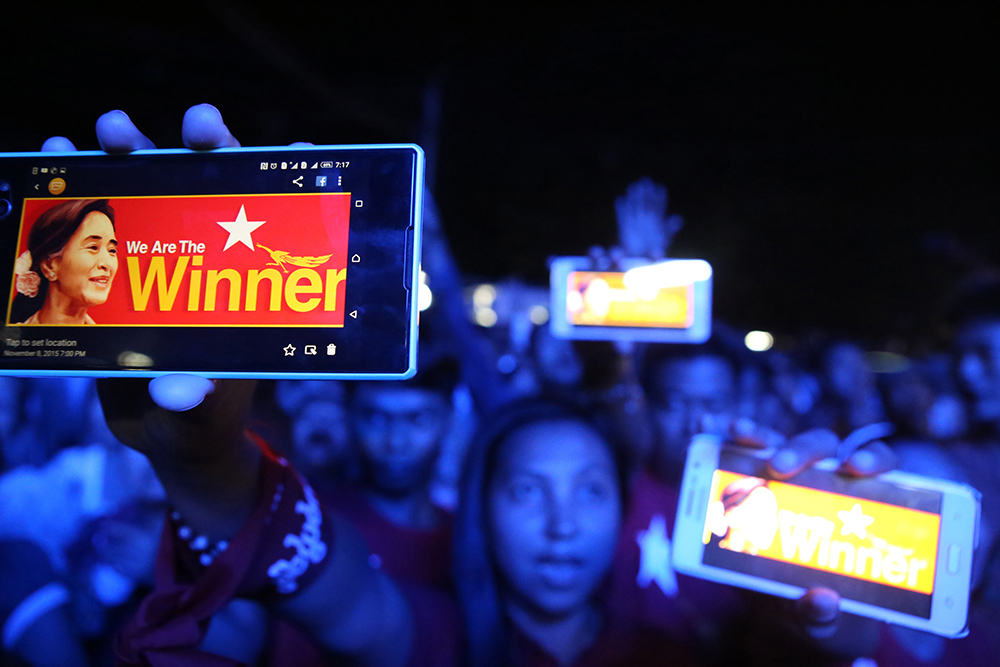
Nhtung Hka Naw Sam said the main responsibility of the committee is to convey the NLD’s policies to ethnic people.
“So far, we don’t plan to negotiate with the ethnic parties for the 2020 election. As we did in 2015, we will contest all the constituencies,” Nhtung Hka Naw Sam said.
Meanwhile, many ethnic parties have already begun choosing candidates for the upcoming election. As the NLD still refuses to ally with them, they will have to choose other “big parties” as possible coalition government partners, should they see electoral success.
U Ngai Sak said, “If the NLD keeps ignoring ethnic parties, they will possibly ally with another group. What if the NLD does not win enough seats in the 2020 election? They need to negotiate with ethnic parties before it’s too late.”
“Ignoring ethnic parties will hurt the NLD; they won’t get any benefit from it. They need to consider the long term. They can’t neglect the role of ethnic parties if they want to form a federal Union. If they neglect [ethnic parties], it will be their loss,” U Ngai Sak said.
However, the NLD seems not to be paying heed to the collective calls.
On Thursday, after the party’s Central Executive Committee meeting in Naypyitaw, NLD vice chairman Dr. Zaw Myint Maung told the media that forming a coalition government hadn’t even crossed the party leaders’ minds, as “nationwide reform could only be possible when the NLD is able to form a government.”
“We haven’t thought about it,” he said.
“We will try fairly to form a government to make democracy strong again. That’s what our contest means.”
You may also like these stories:
One Year on, Still No Justice in Myanmar’s ‘Victoria’ Toddler Rape Case
In Myanmar, Concerns That China’s Help on COVID-19 Comes With Strings Attached

















